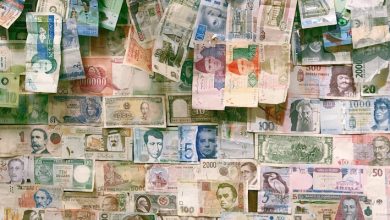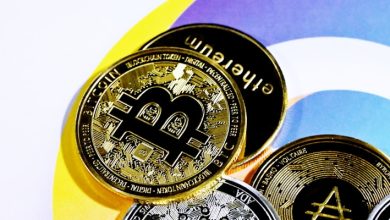The Role of NFTs in the Metaverse Economy

- The basics of NFTs and how they function in the Metaverse
- The impact of NFTs on digital ownership within the Metaverse
- NFTs as a driving force for the Metaverse economy
- The potential of NFTs to revolutionize virtual asset trading
- Challenges and opportunities of integrating NFTs in the Metaverse economy
- Exploring the future possibilities of NFTs in shaping the Metaverse landscape
The basics of NFTs and how they function in the Metaverse
NFTs, or non-fungible tokens, are unique digital assets that exist on the blockchain. Unlike cryptocurrencies such as Bitcoin or Ethereum, which are fungible and can be exchanged on a one-to-one basis, NFTs are one-of-a-kind and cannot be replicated. This uniqueness is what makes NFTs valuable in the digital world.
When it comes to the Metaverse, NFTs play a crucial role in creating a digital economy where users can buy, sell, and trade virtual assets. These assets can range from virtual real estate to digital art, in-game items, and even virtual clothing for avatars. NFTs enable ownership and provenance of these assets, allowing users to truly own and control their digital possessions.
One of the key features of NFTs is their ability to be easily verified and authenticated, thanks to the blockchain technology that underpins them. This ensures that each NFT is unique and cannot be duplicated or tampered with. Additionally, NFTs can be bought and sold on various online marketplaces, creating a liquid market for digital assets in the Metaverse.
The impact of NFTs on digital ownership within the Metaverse
NFTs have revolutionized the concept of digital ownership within the Metaverse, providing a unique way for users to buy, sell, and trade virtual assets. These non-fungible tokens are cryptographic tokens that represent ownership of a specific item or piece of content, such as artwork, virtual real estate, or in-game items. By leveraging blockchain technology, NFTs ensure the authenticity and scarcity of digital assets, allowing users to prove ownership and transfer them securely.
One of the key impacts of NFTs on digital ownership within the Metaverse is the ability to create verifiable scarcity and provenance for virtual assets. This has led to a booming market for digital collectibles, where users can buy and sell unique items with confidence in their authenticity. Additionally, NFTs have enabled artists and creators to monetize their digital works directly, bypassing traditional gatekeepers and reaching a global audience of collectors.
Furthermore, NFTs have introduced new possibilities for interoperability and cross-platform asset ownership within the Metaverse. Users can now own virtual assets that can be used across different virtual worlds and games, creating a seamless experience for players and collectors. This has the potential to foster a vibrant economy of digital assets, where users can invest in virtual properties and assets with real-world value.
NFTs as a driving force for the Metaverse economy
In the emerging Metaverse economy, non-fungible tokens (NFTs) are playing a pivotal role as a driving force. NFTs are unique digital assets that represent ownership of a particular item or piece of content. These tokens are revolutionizing the way digital assets are bought, sold, and traded in virtual environments.
NFTs have the potential to transform the Metaverse economy by providing a secure and transparent way to authenticate ownership of digital assets. This authenticity is crucial in a virtual world where the value of digital assets can be easily manipulated or counterfeited. By using blockchain technology, NFTs ensure that each digital asset is one-of-a-kind and cannot be duplicated.
Moreover, NFTs are also creating new opportunities for creators and developers to monetize their work in the Metaverse. Artists, musicians, game developers, and other content creators can now tokenize their creations as NFTs and sell them directly to their fans and collectors. This direct-to-consumer model bypasses traditional intermediaries, allowing creators to retain more control and profits from their work.
As NFTs continue to gain popularity and acceptance in the Metaverse, they are expected to become a cornerstone of the virtual economy. These digital assets have the potential to unlock new revenue streams, drive innovation, and empower creators in ways that were not possible before. The future of the Metaverse economy is bright, thanks to the transformative power of NFTs.
The potential of NFTs to revolutionize virtual asset trading
Non-fungible tokens (NFTs) have emerged as a game-changer in the virtual asset trading space, offering unique digital assets that are irreplaceable and verifiable on the blockchain. The potential of NFTs to revolutionize virtual asset trading is undeniable, as they provide a secure and transparent way to buy, sell, and trade digital assets in the metaverse economy.
Unlike traditional virtual assets, which can be easily duplicated or counterfeited, NFTs are one-of-a-kind digital assets that cannot be replicated. This scarcity and authenticity make NFTs highly desirable to collectors, gamers, and investors looking to own unique digital items in the virtual world.
Furthermore, NFTs have the potential to unlock new revenue streams for creators and developers in the metaverse economy. By tokenizing digital assets such as art, music, virtual real estate, and in-game items, creators can monetize their work through NFT sales, royalties, and licensing agreements.
Overall, the rise of NFTs signals a shift towards a more decentralized and democratized virtual asset trading landscape, where ownership and value are determined by the community rather than centralized authorities. As the metaverse economy continues to evolve, NFTs are poised to play a key role in shaping the future of virtual asset trading and ownership.
Challenges and opportunities of integrating NFTs in the Metaverse economy
One of the key challenges of integrating Non-Fungible Tokens (NFTs) in the Metaverse economy is the need for widespread adoption and acceptance. While NFTs have gained popularity in recent years, there is still a lack of understanding among the general population about their potential uses and benefits. Educating users about the value of NFTs and how they can be utilized within the Metaverse will be crucial in driving adoption.
Another challenge is the issue of scalability and interoperability. As the Metaverse continues to expand and evolve, there will be a growing need for NFTs to work seamlessly across different platforms and virtual worlds. Ensuring that NFTs can be easily transferred and used in various environments will be essential for their long-term success in the Metaverse economy.
On the flip side, integrating NFTs in the Metaverse economy also presents a wealth of opportunities. NFTs have the potential to revolutionize the way digital assets are bought, sold, and traded within virtual worlds. By creating unique, verifiable digital assets, NFTs can enable new forms of ownership and value creation for users.
Furthermore, NFTs can provide a new revenue stream for content creators and developers within the Metaverse. By tokenizing digital assets such as artwork, music, and virtual real estate, creators can monetize their work in ways that were previously not possible. This can lead to a more vibrant and diverse ecosystem within the Metaverse, attracting more users and driving further growth.
Overall, while there are challenges to overcome, the integration of NFTs in the Metaverse economy presents exciting opportunities for innovation and growth. By addressing issues of adoption, scalability, and interoperability, the Metaverse has the potential to become a thriving ecosystem where NFTs play a central role in shaping the future of digital ownership and creativity.
Exploring the future possibilities of NFTs in shaping the Metaverse landscape
In considering the future potentials of NFTs within the Metaverse landscape, it becomes evident that these unique digital assets hold significant promise in shaping the virtual economy. NFTs have the capability to revolutionize how digital goods are bought, sold, and traded within virtual worlds. This innovation opens up a wealth of opportunities for creators, investors, and users alike to engage in a new era of digital ownership and expression.
One of the key ways in which NFTs are poised to impact the Metaverse is through their ability to provide verifiable ownership of digital assets. By utilizing blockchain technology, NFTs offer a secure and transparent way for individuals to prove ownership of virtual items, such as artwork, collectibles, and virtual real estate. This level of trust and authenticity is crucial in establishing a thriving digital economy within the Metaverse.
Furthermore, NFTs have the potential to enhance the overall user experience within virtual worlds. Through the use of non-fungible tokens, users can personalize their avatars, customize their virtual spaces, and access exclusive digital content in ways that were previously not possible. This level of personalization and uniqueness can greatly enrich the immersive experience of the Metaverse for all participants.
In addition to their impact on individual users, NFTs also have the power to drive economic growth within the Metaverse. As more creators and developers begin to tokenize their digital creations, a new market for virtual goods and services will emerge. This market has the potential to generate significant revenue streams for those involved, further incentivizing innovation and creativity within the virtual landscape.
Overall, the future possibilities of NFTs in shaping the Metaverse are vast and exciting. As these digital assets continue to gain traction and adoption, they will play an increasingly central role in defining the economy, culture, and user experience of virtual worlds. By embracing the potential of NFTs, we can unlock new opportunities for growth, collaboration, and self-expression within the ever-evolving landscape of the Metaverse.



